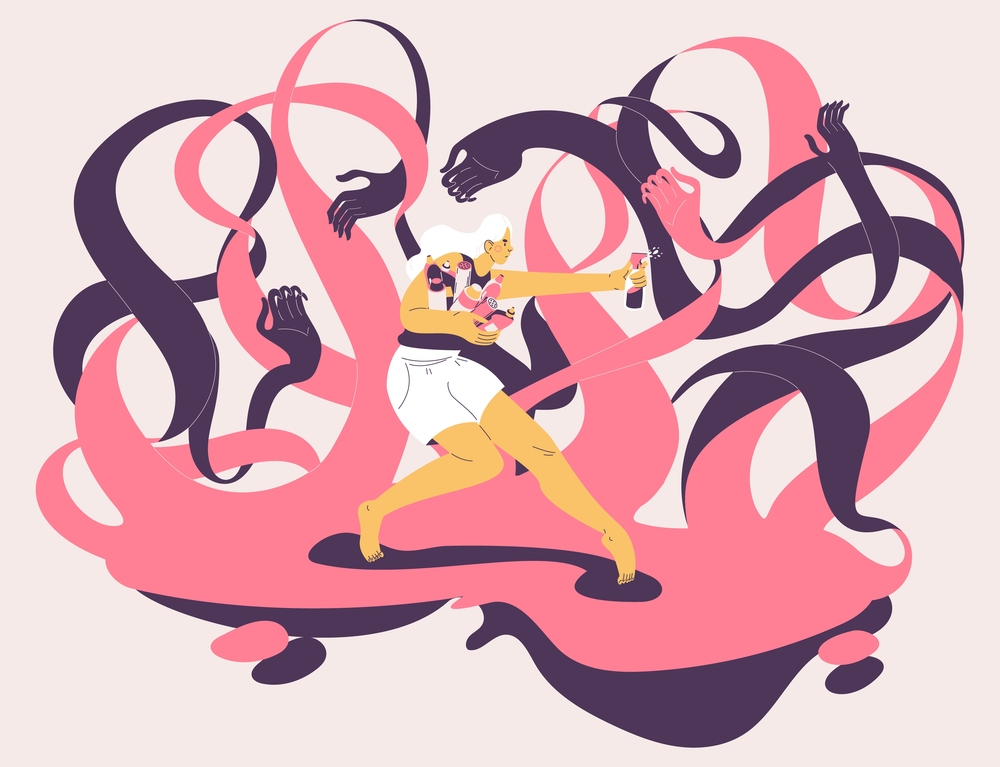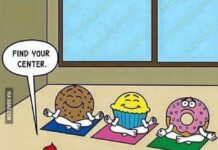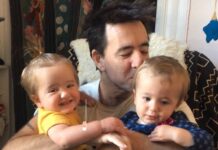In a new article published in Behavioral and Cognitive Psychotherapy, Rachel Verin and her colleagues explore the relationships between obsessive-compulsive disorder (OCD), death anxiety, and attachment style. The authors use interview data from 48 participants diagnosed with and seeking treatment for OCD.
The present research finds, in line with previous studies on this topic, that death anxiety strongly predicts OCD severity. However, contrary to the authors’ hypothesis, the results suggest that anxious and avoidant attachment styles do not correlate to OCD severity.
“The present findings, while correlational, are consistent with experimental findings that suggest the central role of death anxiety in OCD,” Verin and her co-authors write. “The current evidence suggests that attachment while serving as an effective buffer against death anxiety in non-clinical samples, may be insufficient for individuals with OCD.”

Previous research has found death anxiety to be a strong predictor of mental illness in terms of a number of lifetime diagnoses, medications, hospitalizations, distress/impairment, depression, anxiety, and stress. Some authors have suggested that by not treating death anxiety directly, we may doom service users to a “revolving door” of diagnoses where once we get a set of symptoms under control, a new set emerges.
OCD has been notoriously difficult to treat. One of the most effective therapies is called Exposure and Response Prevention (ERP). ERP is similar to exposure therapy in that it directs the service user to experience their obsession without repeatedly engaging in compulsion. For example, people with obsessive thoughts about germs that manifest in compulsive grooming behaviors may be asked to dirty their hands without washing them.
Unfortunately, there are few therapists trained in ERP. This can severely limit access to therapy for people that do not have significant financial resources. The authors have estimated that due to the limited number of practitioners familiar with ERP, it typically takes OCD sufferers about 17 years to find proper treatment.
While ERP does show great promise in treating OCD, most patients prefer other kinds of psychotherapy over both ERP and medications. This preference is likely due to the immense discomfort service users experience in the first stages of ERP. While service users report preferences for other treatments besides ERP, the attrition rates for ERP are similar to that of different treatments for OCD.
Attachment theory states that we form specific attachments with our primary caregivers in our early childhood. If we are provided with our basic necessities and nurtured, we form secure attachments that allow us to feel safe exploring the world around us. However, if we are neglected, we form an insecure attachment, vastly limiting our ability to interact with our world. However, new research has suggested that these attachments and their supposed consequences are far from a universal truth. They argue that rather than describing an objective, universal fact, attachment theory outlines a cultural construct that is only relevant (decreasingly so) to the culture that created it.
The present research explains that death anxiety has been highly correlated to OCD. Previous research has also shown this correlation to be causal, meaning that things in the world that remind OCD sufferers of death may also trigger their compulsive behaviors. Previous research has also found that secure attachment mitigates death anxiety. However, little to no research exists exploring this relationship in people diagnosed with OCD. The present study is designed to fill this gap in knowledge.
The present research utilizes the Multidimensional Fear of Death Scale, the Vancouver Obsessive-Compulsive Inventory, and the Experiences in Close Relationships-Revised interview tools to access the relationship between death anxiety, OCD, and attachment.
The researchers recruited 48 participants from a clinical psychology practice in Sydney, Australia. They were over 18 years old, had a current diagnosis of OCD, and had ODC as their principal diagnosis if more than one diagnosis was present. The participants were overwhelmingly Caucasian (93.8% or 45 of 48) and educated (with an average of 15.95 years of education).
First, the authors compared death anxiety scores to OCD severity. Consistent with previous research, they found a strong positive correlation between death anxiety and OCD severity in their participants. The authors also note that their sample of participants scored significantly higher in measures of death anxiety than the general population, further suggesting a link between death anxiety and OCD.
Next, the authors investigated the link between attachment styles and OCD severity in their sample. Contrary to their hypothesis, anxious and avoidant (therefore insecure) attachment styles did not significantly predict OCD severity. The authors note that although insecure attachment does not seem to correlate to OCD severity in their participants, their sample does demonstrate considerably higher rates of insecure attachment than the average population.
These findings indicate that secure attachment as a buffer for death anxiety may only hold in non-clinical populations. In other words, secure attachment likely protects “psychologically robust” individuals from death anxiety but provides no such benefit with clinically significant levels of distress.
The authors acknowledge several limitations to the current research. First, this study is correlational, meaning it is impossible to draw causal conclusions (for example, that death anxiety causes OCD severity or that insecure attachment causes more death anxiety).
Second, this research was done during the Covid-19 pandemic, which means participants were likely exposed to increased daily death reminders. Last, the small sample size makes an exploration of OCD sub-types impossible and generalization to larger populations shaky at best. The authors conclude:
“The present findings, while correlational, are consistent with experimental findings that suggest the central role of death anxiety in OCD. Based on this mounting evidence, the current clinical recommendations include directly targeting death anxiety using evidence-based approaches, such as exposure therapy. Current treatment approaches for OCD typically focus on disproving the client’s estimates of threat (e.g., the probability of contracting an illness) rather than directly targeting the underlying cause. However, by failing to target death anxiety, such treatments may contribute to the ‘revolving door’ of mental health, in which an individual may receive effective treatment for one condition, only to later return to treatment later in life with a different disorder, given that the underlying cause has not been resolved.”
****
Verin, R. E., Menzies, R. E., & Menzies, R. G. (2021). OCD, death anxiety, and attachment: what’s love got to do with it? Behavioural and Cognitive Psychotherapy, 50(2), 131–141. https://doi.org/10.1017/s135246582100045x (Link)















I would suggest that most DSM ‘disorders’ are actually symptoms of dissociation after 15 years of embracing my wife’s extreme dissociation and walking thru it with her. And as I repeatedly assured her, “focus on the trauma and dissociation and the rest will take care of itself.’ And it has. Her other issues have largely disappeared or become minor.
Attachment is the way I helped heal and dissolve my wife’s dissociation, but it doesn’t ‘cure’ the things caused by dissociation (the so-called dsm ‘disorders’). Those are resolved when the various part of the mind are reconnected (after the dissociation is dissolved) and then balance comes back to the person as the healing/mitigating parts of the mind can ‘balance’ those parts which need it.
Sam
Report comment
Paradoxical therapy. The man who was marched into Nazi showers during the war invented it in a mid trauma reverie. I could look up his name but that would be pompous. I am too indolent to wash things down to their neutrinos. I was just mulling over what to add to the comment I did on the book “Why Do Men Hate Women”. That is because I know I detest books that exonerate anyone to hate who they think are hateful almost more than I dislike the initial haters…
Book titles like…
“Im disabled and everyone hates disabled”
or
“Im tall and nobody appreciates the tall”
on and on the petulant books arrive. On my wander up hills I was thinking I must add that I myself actually appreciate men. I was listing why when I passed by a man in a bush with a telephoto lens. I asked him if he was photographing an orchid. He said….”a butterfly”.
He was not to know I had felt compelled to study butterflies the evening before. My angels can turn my interest to peculiar tangents that have no relevance to my life. Until the very next day. So I approached the man and expressed my astonishment at a flake of beingness I had never met previously, a Northern Brown Argus. There it was. A miniscule butterfly, beside a big tall man. The angels let me know he felt lonely. We shared a long talk about the other animals in the landscape. We were ape animals looking through foliage at a mirage world butterfly. The conversation was that of children whose timidity is eclipsed by curiosity. On my way home it occurred to me that the love of butterflies is something I like about men.
During the pandemic my angels did not want me to get that infection so I had to be extra cautious. I did not mind being so OCD. Each ablution was like the ritual a Goddess might make, with copious bathings. They say it takes seven years for the body’s skin to be renewed entirely. I am not sure how boffins of science counted to that impressively sure figure, but I reckon it will be only two years before a billion pandemic scourers will look brand new. My OCD phase was not so much tilted towards the anxiety as the serenity. A sacred rite of purification leading to an afterglow.
A translucent calm.
Lots of humans feel a need to purify themselves. Not because there is anything to sponge off but because the daft act of doing something, anything, to the body, feels a primitive must. Many wash themselves in the zestful cascade of a belief. Many more scrub their way to salvation via a lotion.
The human is a primate, a creature meant to sit in groups and do plucking.
OCD is occasionally a form of feather preening gone mad.
Report comment
Dear Richard Sears do you have an up to date contact email address? The one on your bio is maybe out of date? Steve does not seem to know a Richard Sears and so has failed to give your contact details to me.
Report comment
To clarify, I looked in our database of users and did not find “Richard Sears” there. I do know who Richard Sears is.
Report comment
There is probably some worth in this, but it is still to bound up with the ideas of mental health and disorders.
Joshua
Report comment
https://youtu.be/56QuNL9MrF0
Dear lovely companions sadly I have to go live off grid.
My mental wellbeing is needing to have some “me time”. But it is not without some measure of gladness that I retreat to the stars and the moon and tribal seclusion.
Abandon all hope that the world will be a comforting place in the foreseeable future. One day eventually yes. The future will be fine one day when all of this blows over. But not now. Not for a decade or two. A darkness is descending. A terrible regime. Five meteor strikes. A massive global flood. Hunger. War.
The Hoover Dam exploding will be a portent or sign to reread my comments without judgement.
Only live in love and light.
Stay private.
Keep yourself to yourself.
Literally learn to swim.
The awful tide is turning.
Retreat to your own hearth and home.
Think not of tommorow.
Live as the animals do in only living in the here and now.
Abandon all hope. Animals have no thought of future hope. Animals do not think enough to know of any future. That is why they stay blissfully happy. Having hope means endeavour and trying and exertion and exhaustion and collapse. Hopelessness can be a faster route to happiness since you give up trying to endlessly fix everything and everyone. Like the animal lives, reduce your hope to the hope for a lovely day. And many of these simple lovely days will be as if notched beads threaded. Your life becomes a string of fresh river water pearls. Do not scatter your opalescent days to the biblical swine herd. They would not know what to do with your lovely day but lose it for you.
The passing of the moon is as a pearl on the velvet cloak of night. Follow the moon. It is more ancient than the mixed up human who orders you to follow them. The moon is the lantern of the animal. The moon demands nothing of them.
Goodbye my friends.
Goodbye.
Report comment
https://youtu.be/OISrDL-mW8I
Just back to this bench to pick up my dropped sandwich…and leave this video I found today. He seems a good guide. A moon man who demands nothing of you.
I am away to send a letter to my adult offspring, to tell them never to listen to the masses. Particulary over the propaganda going on that seems to say that every parent is a narcissitic sex abuser who deliberately traumatized them. Everyone is supposed to be so traumatized by mom’s and dad’s that they cannot recall it. Hard to ever refute something that might be so deeply concealed from consciousness. No adult child in doubt will want to check the reality out about that with their parents, as it is such a gross question to ask. And who wants the possibility of a shocking answer. So the reality is not made safe but lingers in unease and the very unease becomes seized upon by peripheral inquisitors as proof apparent. In this climate it is wise for parents who know they have never even contemplated calculated vile harm of their offspring to actually tell them the truth that they have not. It will come as a huge healing relief to let go of such poison.
That is not to say that abuse is not a problem in society. It is a massive catastrophe. Nobody nobody nobody is challenging societal indifference to abuse.
Two things can be true.
That there are loving parents.
That there are unloving parents.
In any sort of war nobody wants two things to be true. The first casualty of war is truth itself.
Guard what is truth to you.
Goodbye.
Report comment
Language is extremely important for healing. I think an adult may or may not need attachment but all adults need safety. When we confuse the two due to our cultural lenses, then of course a person told to believe they “need secure attachment” as an adult and failing at that would focus on making sure the environment is extremely safe.
Report comment